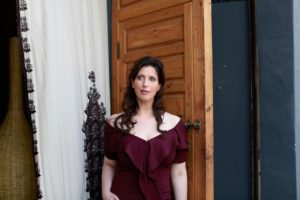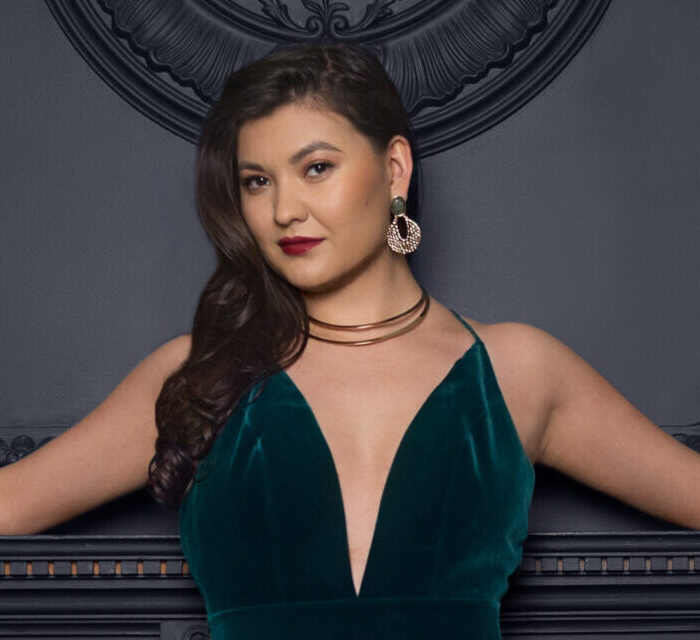
Q&A Ellie Dehn On Her Role Debut As ‘Manon’ At The San Francisco Opera
By Francisco SalazarOver the past years, Ellie Dehn has received critical acclaim for her exceptional performances at the Metropolitan Opera, Teatro alla Scala, Royal Opera House, Bayerische Staatsoper, San Francisco Opera, Los Angeles Opera, and Houston Grand Opera among other theaters.
Dehn has also been hailed for her versatility in repertoire and as also emerged as a specialist in works by Mozart. She has also become a favorite of the San Francisco Opera ever since her debut. This season Dehn makes a landmark role debut in Massenet’s “Manon” with SF Opera.
The soprano had a chance to speak with OperaWire on the challenges of taking on the iconic character and performing Massenet’s famous score.
OperaWire: You’ll be singing Manon in San Francisco, a role debut. What are the challenges of doing such a major role debut?
Ellie Dehn: Oberlin had done a production of “Manon” my freshman year that I saw multiple times, and I instantly fell in love with the music. I was singing different repertoire then, so I viewed it as a dream role that I may get to do someday, far off in the future. Well, 18 years later, I’m getting a crack at it, but at quite short notice! The main challenge for me was doing justice to prepare and study it organically, but not too frantically, and give it a chance to come to life, without skimming over the details. Simply put, it is a ton of music, much longer than “La Traviata” for example, and without many breaks. In an ideal world, one would be able to try a role like this out in a smaller house and get the pacing and language down, but SFO has been such an incredible company and has put a great deal of care and opportunity into my career. It helped give me confidence that I was up to the challenge. I also knew that it was a French conductor and a very wise audience, so my languages and style needed to be up to snuff. I traveled to Philly, NYC and Chicago to work with my army of coaches and teachers during the few weeks off that I had before coming to Geneva and they helped give me a solid foundation for things to marinade while on my next job. It also helped that I was in a French-speaking area in Switzerland to get a fresh ear for the language.
OW: How do you view Manon? Is there anything you can’t stand about her and what do you identify with her?
ED: Look, she’s a total narcissist and probably a bit bipolar. The Gavotte scene is so over the top pompous that I personally get embarrassed for her at times, but yet it works. She’s a showwoman and people are drawn to her charms. Ultimately, though, we see her arc from the girl on her way to the convent to a fallen woman who for a few moments had everything she wanted. It’s impossible not to pull for her, though. I don’t think anyone cannot be emotionally invested at the end of the night. I think we can all certainly identify with being naïve on some level and coveting the “better life,” but at the end of the day, that kind of thinking needs to stay on the stage!
OW: What are the vocal challenges of this extremely long role?
ED: I would say having the stamina to pace the show, and also to be able to keep the range fresh throughout the night. There is some major singing in all of the acts, and you have to be careful not to push the voice, otherwise, you can risk the stratospheric top notes but also not have enough oomph to be able to sing the last duet as fully and lushly as the orchestration demands.
OW: Have you performed with Michael Fabiano and if so, what does he bring to you as a stage partner? If not, what are you looking forward to, working with him?
ED: Michael and I went to The Academy of Vocal Arts in Philly. He was a baby and a few years behind me, so we weren’t in the same cast of “Don Giovanni,” and we were also on different shows. We have been friends for years, however! He has always brought a sheer magnetism and gravitas to whatever he sings, and that voice is obviously golden. It has been so fun watching him become a star!
I’m looking forward to getting to sing with him. We like to make each other giggle, and I think it’ll translate to some chemistry on stage. I am super comfortable with him already so we’ll have no problem overdoing the steamy bits and having lots of fun up there.
OW: What are your favorite moments in the score?
ED: There isn’t one moment that I don’t love in this opera. The music is like a balm for all of my senses. Obviously, the Saint Sulpice duet is a highlight, but I get chills during the last duet. Honestly, I can’t even choose a favorite aria from the five arias that Manon gets! Ask me again in a few weeks, I’m sure that I’ll have a different answer!
OW: What is so pleasant about working at San Francisco Opera? How does this company differ from the rest? Why is debuting Manon with this company so special?
ED: This company is truly my home company. They took a chance on me when they gave me the Mozart Heroines back in 2010 and I am forever grateful. Over the seven years that I’ve worked here, I’ve been able to become more grounded and am able to become more fearless as a performer because they know that they can trust me. This audience is one of the most intelligent around. They truly know the repertoire and support their artists when they come back. There’s also a familial feel in the building that is like no other, from the people in the offices to the coaching staff and all of the stage managers. Everyone looks out for each other and wants everyone to be shown in the best light. That’s not always the case in this business and I think that it shows in the quality of performances.
OW: How will Manon fit within your repertoire given that you sing Mozart, Verdi, Handel and some Puccini?
ED: That’s a great question. Yes, I do sing a lot from those composers and have been hired for a lot of Mozart over the years. However, my Met debut was in the Parks as Marguerite in “Faust,” and I also sang Antonia in “The Tales of Hoffmann” at La Scala. I’ve done Juliette and a smattering of other rarer French grand operas over the years as well, so I’m definitely no stranger to French music. Renée Fleming, Victoria de Los Angeles, Montserrat Caballé and many others have had success singing “Manon” while maintaining a very versatile list of roles on their roster. I’m humbled and delighted to be given the opportunity to add it to mine.
OW: How do you pace yourself singing a role like Manon?
ED: Ultimately, I need to sing with my voice the whole night and make sure not to get off of my air for the higher passages and not beef it up too much in the dramatic bits. It’s also a very long night of singing. I’ve been working out more to get the breath going so I don’t run out of steam and have been practicing for longer stretches of time also to prepare. This role is like singing five Musettas in a row, so its similar to training for a marathon.


